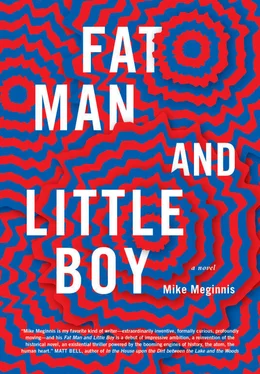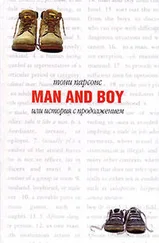Edith Piaf sings “Embrasse-moi” on all the casino’s radios, which are distributed throughout the betting floor. Just now the song is getting to the really slow parts. Masumi, who never liked this one, loses five minutes trying to invent a trilingual pun that cuttingly describes the way her band handles their instruments—surely there must be a French word for performance that rhymes with a German word for strangling a sickly fowl, but he can’t think of it now. It’s been too long since he read.
When he gets serious, when he’s lost enough money and had enough peace, Masumi goes to the blackjack table. He waits politely until he can sit, emptying his glass, drinking openly from the flask. Its concealment is an affectation. No one here cares. In fact the employees—the only ones with whom he will intentionally interact—prefer him drunk. He makes more mistakes that way.
There is a woman who waits for him most nights at the blackjack table, sitting legs crossed, martini in hand, watching the dealer, silently counting cards. She always dresses like a man—brown slacks, white shirt with open cuffs and collar, blue vest, brown fedora—and she keeps her hair tucked up and out of sight. There’s no masking her breasts, however. There is no hiding her hips.
There she is now. Martini, olive floating like a life raft. A single chestnut thread has fallen from beneath her hat, bisecting her eye. A long, thin shadow follows, hooking the chin and climbing to her lower lip, where it meets its mother thread, split ends, clinging to the lip. Her eyes are green. She said her name was Lauren when he asked.
She won’t acknowledge him until he sits down beside her. She’ll stay when he leaves. These are the rules. Other men might object to her rigidity and coldness. Masumi prides himself on being unlike other men. When the seat beside her is vacated by a sweaty, red-faced man in a too-tight suit storming off, hat pushed down over the tops of his ears, Masumi takes it. He crosses his legs, remembers who he is tonight, uncrosses them.
“You’re looking dandy,” says Lauren.
“I was waiting for someone to notice.” He puts his bet in the box.
The dealer lays down his cards. Masumi peeks at his own hand. It’s a soft seventeen—ace hearts, six spades.
“Hit,” says Lauren.
He knew that.
“Hit,” he says. The dealer gives him a five. It’s twelve, then. He hits again, seventeen, and again, twenty.
“Hit,” says Lauren.
It’s a stupid play, but she’s usually right. He goes for it. The dealer tosses out the card eagerly. Diamond seven. Dealer takes Masumi’s money.
“Look at it this way,” Lauren says. “You just ate a lot of shit. Less shit to eat in the next hand.”
The guy on Masumi’s left wins. He tips back his drink and finishes it off all at once in celebration, apparently determined to never win again tonight. He looks like the kind of wealthy that comes here to purge a little. Masumi nods to acknowledge his neighbor’s good fortune.
“I can’t take it anymore, Lauren,” says Masumi.
The dealer lays down two nines.
“Split them,” says Lauren.
Masumi separates the cards, still face-down, and sets out another bet.
The dealer’s top card is a ten. Masumi hits both his hands. Five and eight. He hits them again. Four and three. That’s twenty, twenty-one. He feels good but he’d like to see the hole card.
“The brothers,” hisses Masumi, beneath his breath. “I need to see them again. Just thinking about them makes my hands shake.”
“You seem calm enough,” says Lauren.
“I’m drunk.” He unscrews the flask’s lid, takes a swallow.
In a fit of triumphant laughter, the rich idiot next door elbows him in the side without seeming to notice he’s done it. The dealer flips his hole card: nine of hearts. Masumi prides himself on his graciousness in victory—he collects his winnings with one hand, saluting the dealer in a short, jerky motion with his other.
Lauren smirks. “Where are these brothers?”
“Just a bit south, on the Spanish border, more or less. Not sure what they’re doing there, but probably not hurting anybody.”
“Hit,” says Lauren. “If they’re harmless, why do you get so worked up?”
The dealer adds a two to his seventeen. Lauren tells Masumi to hold, so he does. Dealer loses again, to him and half the table. Half the table cheers. Masumi maintains his reserve.
“If I go there,” whispers Masumi, “if I see them again, I’ll kill either them or myself. I won’t know which until it happens.”
“Collect your winnings,” says Lauren.
Masumi chuckles and takes his money. He’s ahead for the night. All it takes is to win a little more than he loses—if he can do that, he can afford another night in the hotel, another bottle of liquor, another rack of lamb, another chocolate ice cream with sliced, caramelized bananas and sprigs of mint on top. The casino’s patience, its ability to come out just a little bit ahead each day, its constant impersonal hunger balanced by the way it contents itself with emptying the patron’s wallet only a few hundred francs at a time, is an inspiration to Masumi. To attach oneself to the world and suck calmly and with care until the blood wells up beneath its skin and makes a bruise, and then to pierce the flesh, to let the blood thread through one’s spit and down the throat. To nourish oneself on the trickle, this must be the goal of any person. Masumi may never be wealthy, but if he plays by the odds he can live well, and this can be a kind of happiness to replace the kind he used to feel. So far, tonight, he’s ahead, which is just another way of saying he’s winning.
“Hit,” says Lauren.
He does, and goes bust. That’s a good thing. Losing keeps him humble, keeps him mindful of the odds.
“You should go there. You should see them.”
They don’t talk about it anymore. Lauren thinks she’s won. After several more hours, in which following her instructions most of the time leads to winning a small majority of hands, and in which Masumi empties his flask, lending a tearful, stinging bleariness to his eyes and a soft blur to all the world’s edges, he decides she’s right. Meanwhile, a beautiful Parisian with a bevy of bright scarves assumes Lauren’s chair. Lauren effortlessly slides out of the way, orbiting the table so that she still faces the dealer, so that she can still see the cards. She’s sitting on thin air now, like the dead girl upstairs. Most people feel an instinctive aversion to her seat. It can stay empty for hours in a packed house. The average Parisian is apparently, perhaps predictably, unimpressed by premonitions and haunts, or wholly numbed to them from ass to elbows.
Masumi approaches Lauren from behind. “I won’t be seeing you again,” he says, leaning forward to wrap his arms around her. Where they touch they do not touch—he passes through; it feels like nothing. Not even an active absence, but a passive one. He kisses where her ear would be if she had one, if she had anything. “I’m going to go down there. Maybe kill someone.”
No one seems to mind his hugging the air. It doesn’t matter. He’ll never see any of them again.
“Have a good life,” says Lauren, keeping her eyes on the cards.
In this last moment, the worst possible time, Masumi surrenders to the obvious. “I never asked you how you died.”
She peels back the open cuffs of her sleeves, revealing trails of dried blood leading from inner elbows to wrists, delicate bones, firm muscles. He’d never noticed how strong she was.
He leaves her there.
When he gets upstairs, Charlie has gone missing. Masumi never finds him again. The dead girl, thank goodness, is still fussing in the mirror. She doesn’t miss the dead boy because the dead can’t see the dead. The dead can’t see the dead, he thinks, because it would be too much comfort.
Читать дальше












